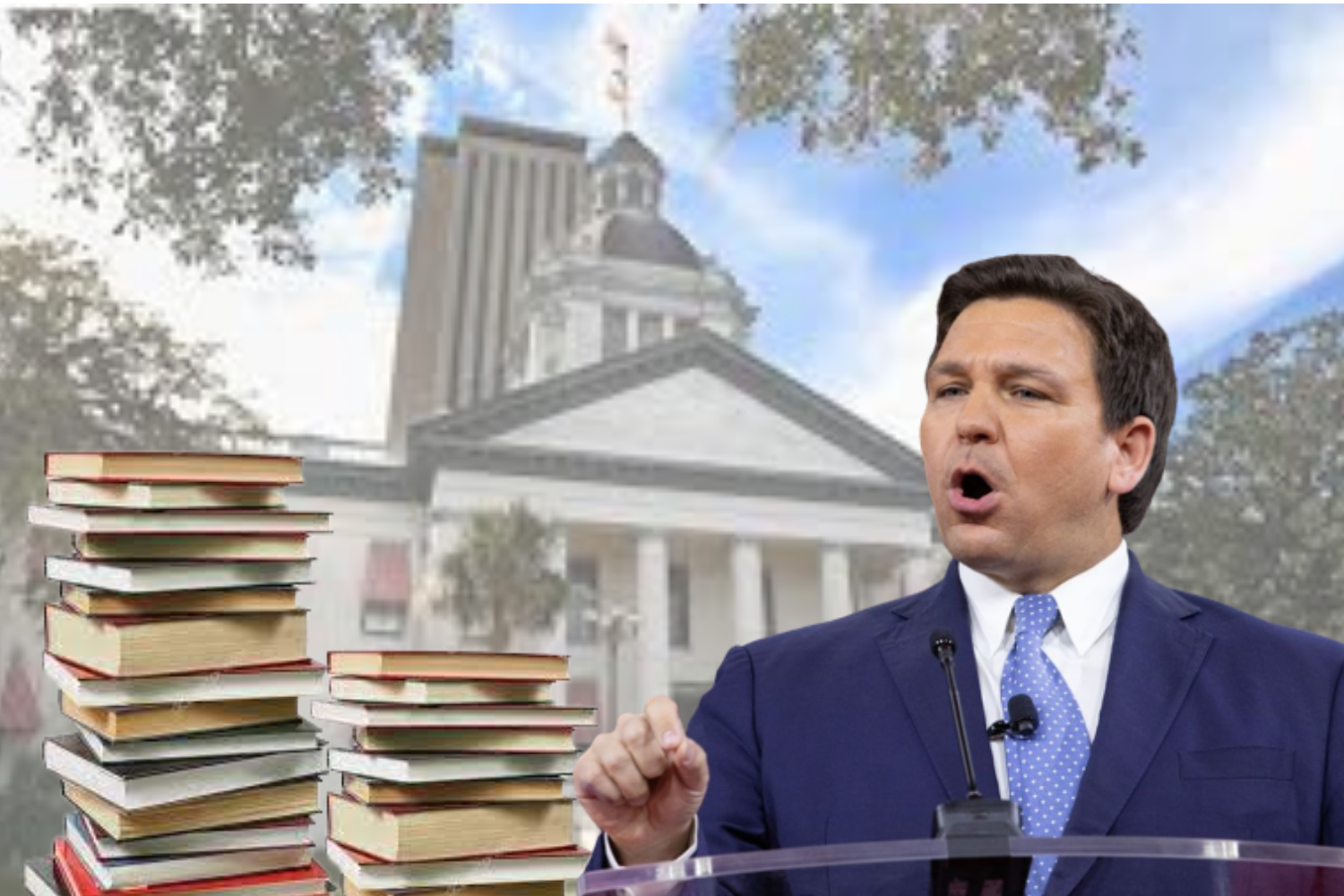Florida enacts new education laws
April 26, 2022
Florida governor Ron Desantis has recently implemented two news laws pertaining to education in Florida public schools. Education has long been a focus for Desantis, as he signed three other educational bills into law in June 2021. While those focused on how civics was taught to students, these two focus on other aspects of the curriculum.
On March 25, Desantis signed House Bill 1467. The bill limits what books can be taught in schools, specifically meant to target “explicit” books. It requires elementary schools to provide searchable lists of books used in the school – either those actively being taught or those available in their libraries. It also set a 12-year term for school board members.
The bill I signed today provides protections for parents by ensuring curriculum transparency in schools.
In Florida, we are empowering parents. pic.twitter.com/nj4GSxZWEq
— Ron DeSantis (@GovRonDeSantis) March 25, 2022
The bill has received some pushback from Democrats, who have said the bill amounts to censorship, considering it akin to burning books. Additionally, it has been called into question exactly what it means for a book to be considered explicit. In his defense of the bill, Desantis pointed to the books Gender Queer by Maia Kobabe and Lawn Boy by Jonathan Evison. The books deal with topics of sexuality, race, and class – topics which some have said should not be considered inappropriate for children.
“I think it could be challenging to determine what’s really inappropriate. I think that should be more of the school’s responsibility to decide, not the parents’,” said Mary D’angelo (’23).
On March 28, three days after HB 1467 was passed, Desantis signed a second and similarly controversial law – the Parental Rights in Education bill, or as critics have dubbed it, the “Don’t Say Gay” bill. This bill forbids schools from instruction on sexual orientation and gender identity from kindergarten to third grade. Any discussion of these topics beyond this grade must be considered “age appropriate.”
“[Being] heteronormative is taught to kids from young age, and I think what this bill is doing is wrong because it’s not taking away the teaching of sexuality, it’s taking away the teaching of homosexuality. It might make kids that identify as such feel like there’s something wrong with them,” said Carolyn Jacobsen (’23).
This second bill has sparked extreme controversy and debate across the nation, even coming from the White House itself. Critics have argued it will contribute to the stigma surrounding the LGBTQ+ community, and make students from this community feel unsafe. When the bill was first introduced, opposing students responded by staging walkouts against the bill. President Biden himself publicly denounced the bill, calling it hateful.
I want every member of the LGBTQI+ community — especially the kids who will be impacted by this hateful bill — to know that you are loved and accepted just as you are. I have your back, and my Administration will continue to fight for the protections and safety you deserve. https://t.co/OcAIMeVpHL
— President Biden (@POTUS) February 8, 2022
US Secretary of Education Miguel Cardona held a virtual meeting with LGBTQ+ students from Florida to discuss their thoughts and concerns. He also issued a statement on March 8, before the bill was passed, saying that the Department of Education will monitor the bill to evaluate if it violates federal civil rights laws, particularly Title IX, which protects students against discrimination based on sexual orientation or gender identity.
While both bills have received backlash, they are also similar in that both grant parents more control over their children’s education. HB 1467 requires schools to announce to the public when they plan to introduce new materials into their classrooms or libraries. These materials are then subject to the approval of the public, and any objections must be reported to the state.
As suggested by its name, the Parental Rights in Education bill also gives guardians more of a say, as it enables them to sue their school districts for violations of this law. The law’s justification is also rooted in the idea of parental control, with Desantis stating parents should be responsible for discussing matters of sexuality and gender with their children, not educators.
Today, I signed HB 1557, the Parental Rights in Education Act, into law.
It ensures parents can send their kids to kindergarten without gender ideology being injected into instruction and they will be notified and have the right to decline healthcare services offered at schools. pic.twitter.com/OLnW2GLrJl
— Ron DeSantis (@GovRonDeSantis) March 28, 2022
The effects of this law have also been seen in the legislatures of other states. On April 7, the Alabama legislature passed SB 184 and HB 322, both of which focus on LGBTQ youth in schools. In addition to requiring students to only use bathroom correlating with their assigned sex at birth, HB 322 also prohibits instruction and discussion sexual orientation and gender identity in the classroom from kindergarten to fifth grade. This was included through a late amendment, added only after Florida’s bill began to gain traction.
“I think these bills will affects students negatively. When you keep kids away from learning and experiencing certain things, they will still find ways to learn about them. And these ways could be much more harmful or dangerous,” said Jacobsen.

